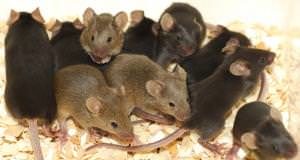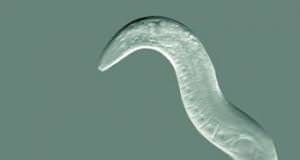Boosting Supply Of Key Brain Chemical Reduces Fatigue In Mice
Researchers at Vanderbilt University have "engineered" a mouse that can run on a treadmill twice as long as a normal mouse by increasing its supply of acetylcholine, the neurotransmitter essential for muscle contraction. The finding, reported this month in the journal Neuroscience, could lead to new treatments for neuromuscular disorders
Acid Suppressive Medication May Increase Risk Of Pneumonia
Using acid suppressive medications, such as proton pump inhibitors and histamine2 receptor antagonists, may increase the risk of developing pneumonia, states an article in CMAJ (Canadian Medical Association Journal).
Novel Weight-Loss Therapies? Scientists Identify Cells In Mice That Can Transform...
In some adults, the white fat cells that we all stockpile so readily are supplemented by a very different form of fat -- brown fat cells, which can offer the neat trick of burning energy rather than storing it. Researchers at Joslin Diabetes Center, which last year led the way in demonstrating an active role for brown fat in adults, now have identified progenitor cells in mouse white fat tissue and skeletal muscle that can be transformed into brown fat cells.
FDA Cracks Down On Tainted Dietary Supplements
Manufacturers who put tainted or undeclared ingredients into dietary supplements were warned Wednesday by the Food and Drug Administration that they can no longer market them as such. The FDA has received reports on well over 100 products over the last few years, a number of them detailed serious injuries, even deaths. In fact, since 2007 the agency has sent out consumer alerts about 300 adulterated products.
Free Radicals Good for You? Banned Herbicide Makes Worms Live Longer
It sounds like science fiction – Dr. Siegfried Hekimi and his student Dr Wen Yang, researchers at McGill’s Department of Biology, tested the current “free radical theory of aging” by creating mutant worms that had increased production of free radicals, predicting they would be short-lived. But they lived even longer than regular worms! Moreover, their enhanced longevity was abolished when they were treated with antioxidants such as vitamin C.
Sleep Makes Your Memories Stronger, And Helps With Creativity
As humans, we spend about a third of our lives asleep. So there must be a point to it, right? Scientists have found that sleep helps consolidate memories, fixing them in the brain so we can retrieve them later. Now, new research is showing that sleep also seems to reorganize memories, picking out the emotional details and reconfiguring the memories to help you produce new and creative ideas, according to the authors of an article in Current Directions in Psychological Science.
The Key To Being Attractive (And Looking Healthy)? A Good Night’s...
If you want to look attractive and healthy, the best thing you can do is get a good night's sleep, finds research in the Christmas issue published on the British Medical Journal website. For the first time, say the authors, there is scientific backing for the concept of beauty sleep.
Garlic Could Protect Against Hip Osteoarthritis
Researchers at King's College London and the University of East Anglia have discovered that women who consume a diet high in allium vegetables, such as garlic, onions and leeks, have lower levels of hip osteoarthritis.
Asthma? Allergens Could Be Growing In Your Lungs
Scientists investigating the allergic reactions that asthmatics suffer towards a common mould have discovered that many people with asthma actually had the mould growing in their own lungs. The research led by University of Leicester scientists at Glenfield Hospital has been published in the December 2010 issue of the American Journal of Respiratory and Critical Care Medicine.
Compound Derived From Curry Spice Is Neuroprotective Against Stroke And Traumatic...
A synthetic derivative of the curry spice turmeric, made by scientists at the Salk Institute for Biological Studies, dramatically improves the behavioral and molecular deficits seen in animal models of ischemic stroke and traumatic brain injury (TBI). Two new studies suggest that the novel compound may have clinical promise for these conditions, which currently lack good therapies.















